Precision Medicine and Biomarkers in Liver Transplantation
This SIG is a network for multicenter and international research collaboration for clinicians, scientists and allied health professionals to promote high-quality translational research to benefit transplant patients.
SIG Summary:
According to the Precision Medicine Initiative, precision medicine is “an emerging approach for disease treatment and prevention that takes into account individual variability in genes, environment, and lifestyle for each person.” This approach will allow doctors and researchers to predict more accurately which treatment and prevention strategies for a disease will work in which groups of people. It contrasts with a one-size-fits-all approach, in which disease treatment and prevention strategies are developed for the average person, with less consideration for the differences between individuals. This is an emerging area of medicine /science that needs to be further developed in liver transplantation. ILTS represents the worldwide society with a higher number of professionals with an interest in liver transplant outcomes. Moreover, ILTS represents a diverse multidisciplinary group that will allow applying for precision medicine in liver transplantation. This SIG was created with the aim of providing a platform for researchers/physicians/ health workers/patients to establish a multidisciplinary and international network to promote the application of precision medicine through further development of new techniques and approaches and biomarker discovery and validation aiming to increase the liver donor organ pool, improve diagnosis and prognosis tools to evaluate conditions affecting transplant recipients, personalization of immunosuppression, and improving post-transplant outcomes.
Specifically, the SIG will provide support for (1) study design for biomarker discovery and validation, (2) platform for exchange of protocols/procedures of state of the art reactions/technologies, (3) guidelines for working with human samples and regulations concerning with Human Subjects Protection regulations as well as biobanking, (4) Guidelines for quality control of sample collection, preservation, scientific rigor in study designs, (5) Guidance for data analyses (inclusion of bioinformatics experts as part of the group is anticipated, and (6) Promoting data sharing in the liver transplant community.
Proposed Activities: What are the intended activities of the group? Develop annual meetings and other educational programming, online education development, social interaction of constituency (online and in-person), etc.
Group activities will include, but not limited to development of following subtopics for increasing research collaborations and provide educational programming to engage members working in Precision Medicine and Biomarker discovery and validation in transplantation. *
*The SIG is open to experts working in related fields involving other solid organ transplants.
Research collaboration and Educational programming (online/ webinars/ in-person) will include:
The “ABC” of Biomarkers: Guidelines including the terminology, methodological approaches, and applications used in biomarker research.
- Biomarkers: Study design
- Gold standard versus surrogate marker
- Prediction versus Diagnosis
- Statistical component of the study- relevance of power
Evaluation of donor quality to improve short term outcomes.
- Updates on availability of current biomarker (pre and post-transplant).
- Discussion of the limitations associated with current strategies.
- Establishment of an international forum to discuss discovery and validation of new biomarkers to better asses donor quality.
- Data sharing plan: facilitating resources to the ILTS scientific community
Artificial Intelligence (AI): Old ideas using New Strategies-Machine learning and alternative options.
- Discussion of data types that can be analyzed by AI systems.
- Updates on past, present and future of AI dependent biomarker monitoring in transplant.
- Advantages of AI system to monitor dynamic changes to improve outcome prediction.
System Biology: Integrative approaches to discerning pathways associated with healthy versus diseased liver grafts
- The subgroup will include discussion and updates on biomarkers that include, cell-free DNA/RNA/MiRNA/tRNA, exosomes, extracellular vesicles, and mitochondrial DNA.
- Establishing an interface for facilitating interaction between basic and translational researchers to combine data from pre-clinical models and translational studies.
Member engagement
- Provide networking, collaborations, mentorship opportunities through in-person meetings at the Annual Congress, webinars, and through the development of small workgroups.
The overall goal of the current SIG is to provide leadership, vision, and support to promote a strong platform with ILTS members promoting new strategies in liver transplant research and translation of results to patients for improving outcomes and patient quality of life. To facilitate knowledge sharing across institutions and disciplines, thereby promoting interactions and collaborations among different specialties (nephrology, hepatology, cardiology, and surgery) and groups (clinicians, scientist and other health professionals). The Biomarkers in Transplant SIG is open to any member of the ILTS and we encourage all to join and contribute to advancing the field of biomarkers.
Educational Material
The SIG has gathered all ILTS educational content in one place! And this includes a dedicated SIG newsletter by the Steering Committee members. Use this platform without moderation:
How to join
Members can join by selecting one or more SIGs from their profile page on this website: click on your name, your profile and add a SIG group.






